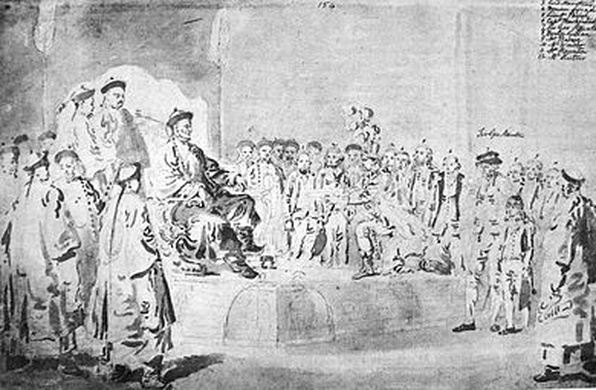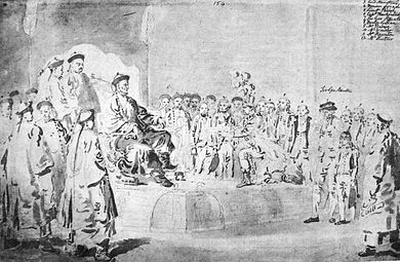European wars are depleting England’s bullion reserves that had been funding the purchase of tea and silk from China. As a result, England seeks to maximize exports of Indian cotton and opium to China and demand silver in return. The British East India Company takes full control of the Bengal opium trade.
The Qing Dynasty itself was greatly weakened politically and economically, in part because of wide-spread corruption. So in 1796, an edict from the Emperor prohibited the import of opium and the export of silver. The edict had little effect and corrupt officials continued to purchase opium with silver illegally.
Source: Austin, A.A. (1978). Perspectives on the History of Psychoactive Substance Use. NIDA.
| Drugs: |
Opium (morphine, heroin, opioids) |
| Regions: |
China, India, UK (England, Scotland, Wales, Northern Ireland) |
| Topics: |
Cultivation, production and trade, Prohibition |
Related Timeline Items
Emperor Yung Cheng prohibits the sale of opium for smoking in China (1729 CE)
An edict prohibiting the sale of opium and the operation of smoking houses is issued by Emperor Yung Cheng. The selling of opium for smoking purposes is now considered a crime. Opium merchants (but not buyers) face severe penalties including execution. The edict did not prohibit traditional medicinal use of opium.
The edict was in response to reports of the evils of opium smoking in some of the remote southern areas influenced by foreign traders and where there had been an epidemic of lawlessness. Until well into the 18th century, opium smoking is relatively localized and not taken too seriously by the imperial government.
The edict did not have much impact on the opium trade or the growing practice of smoking opium, in part, because of strong demand, a ready supply and the corruption of local officials.

Lord Macartney's embassy to China, 1793: mutual misunderstanding

